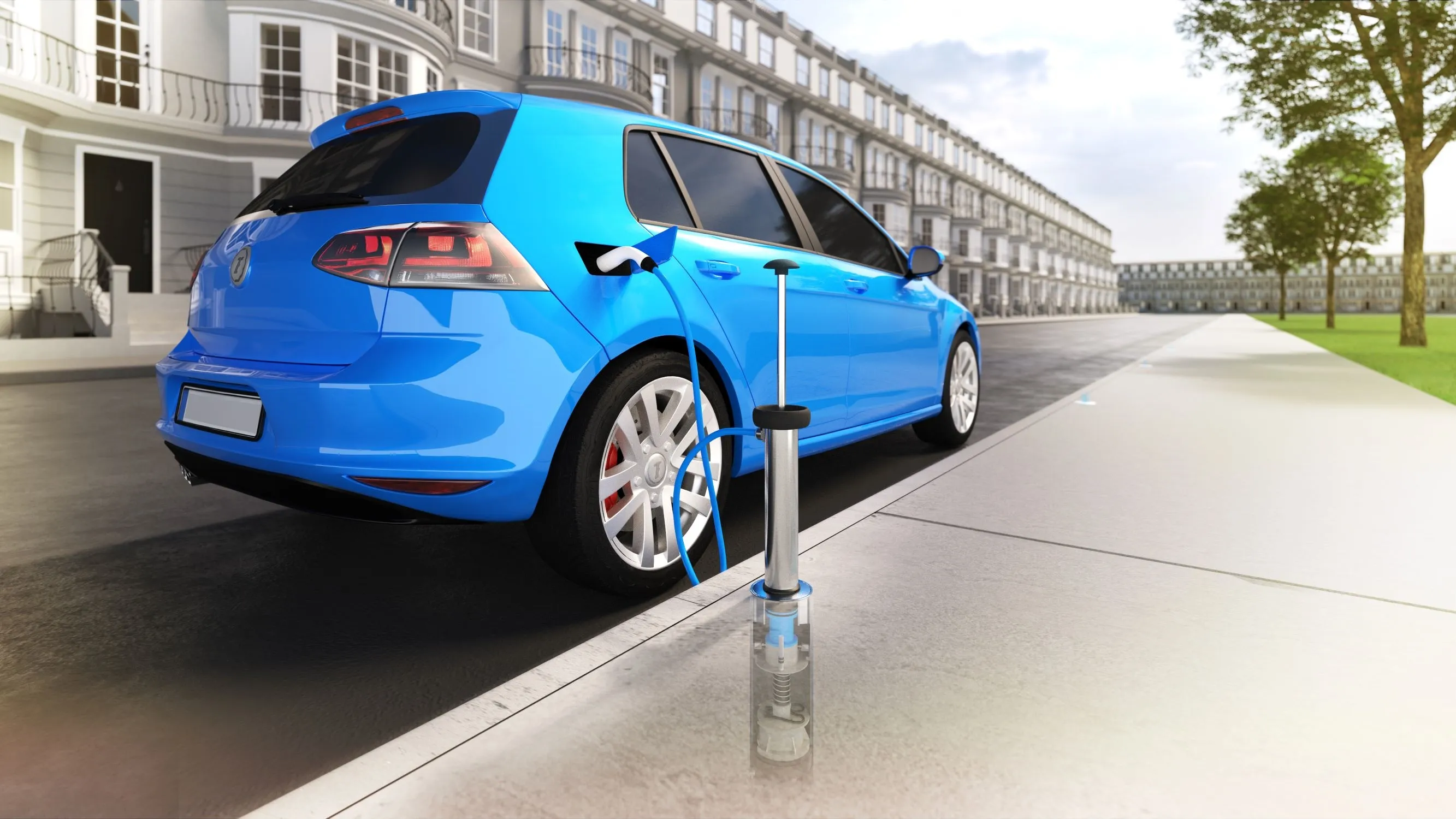
Scottish firm Trojan Energy says it will roll out its new electric vehicle (EV) charge points starting next year.
Unlike traditional EV chargers, these are flat and flush to the pavement, removing the need to sacrifice pedestrian space.
EV users simply carry in their vehicles a charging 'lance' that they plug into the connector point on the pavement to start charging.
The company, based in Aberdeen, recently secured £4.1 million to help support the installation.
Trojan will advance test and certify the product, with the aim of installing the first 200 units with Brent and Camden councils in London by early 2021.
The company says that city and regional councils have been reluctant to install traditional on-street charging points because their physical size means less space for pedestrians.
The company also plans to follow the roll-out of its on-street product with a similar one for the driveways of homeowners. This will eliminate the need for posts or wall boxes to charge at home.
“Ever since we started this business [in 2016], we have wanted to ensure that the benefits of the low-carbon transition can be realised by everyone and not just those with a driveway,” said Trojan chief executive Ian Mackenzie.








